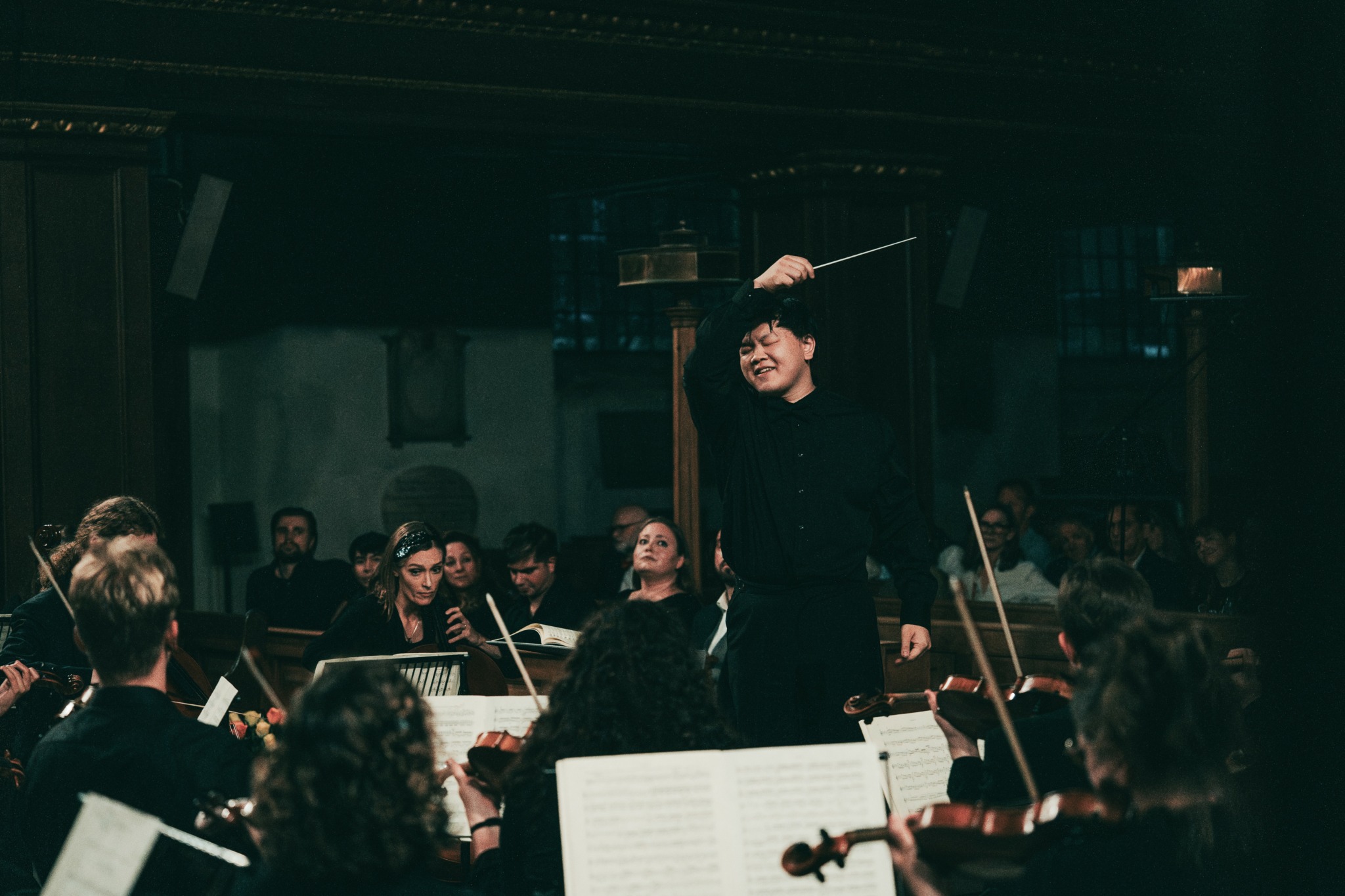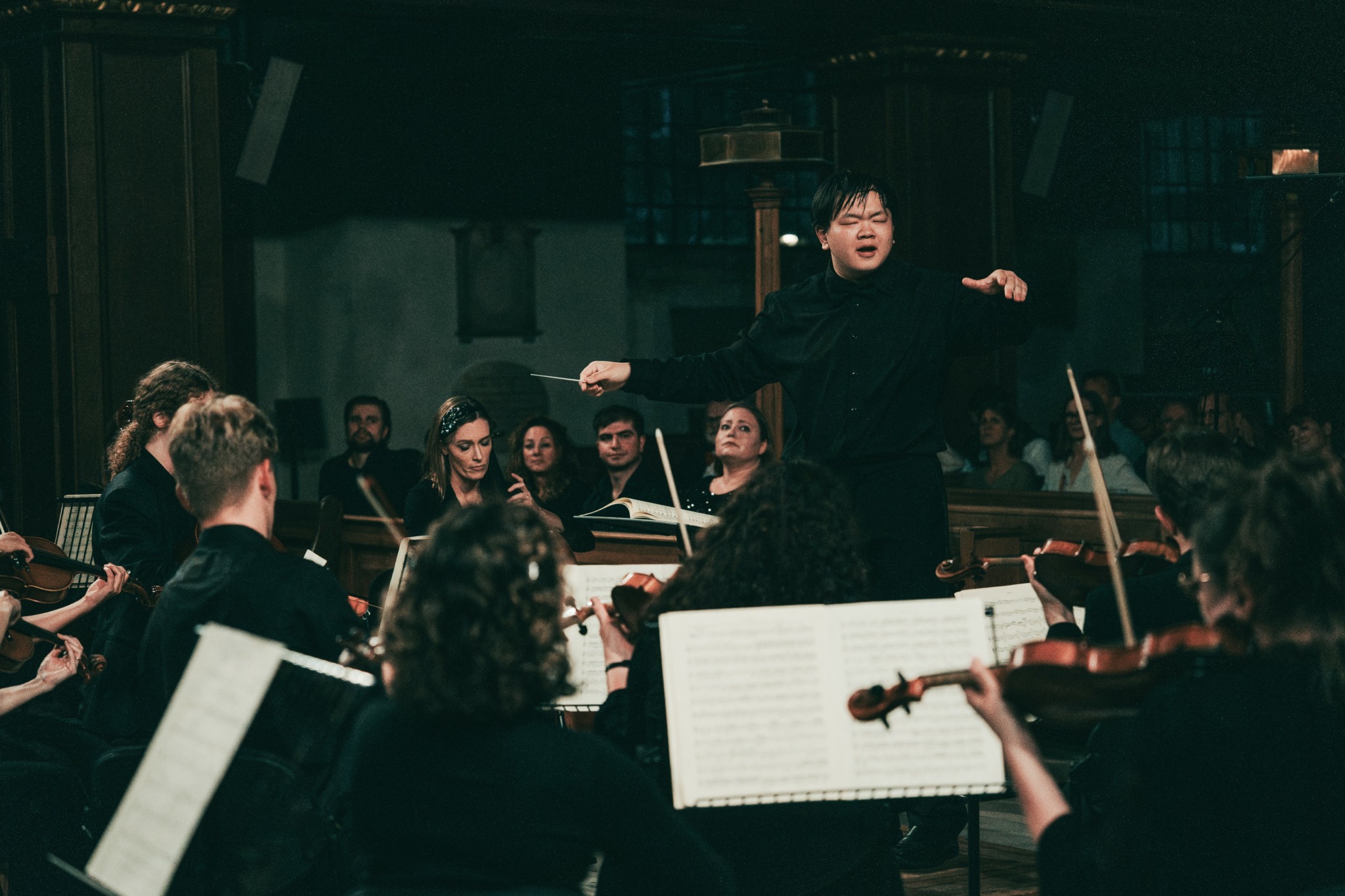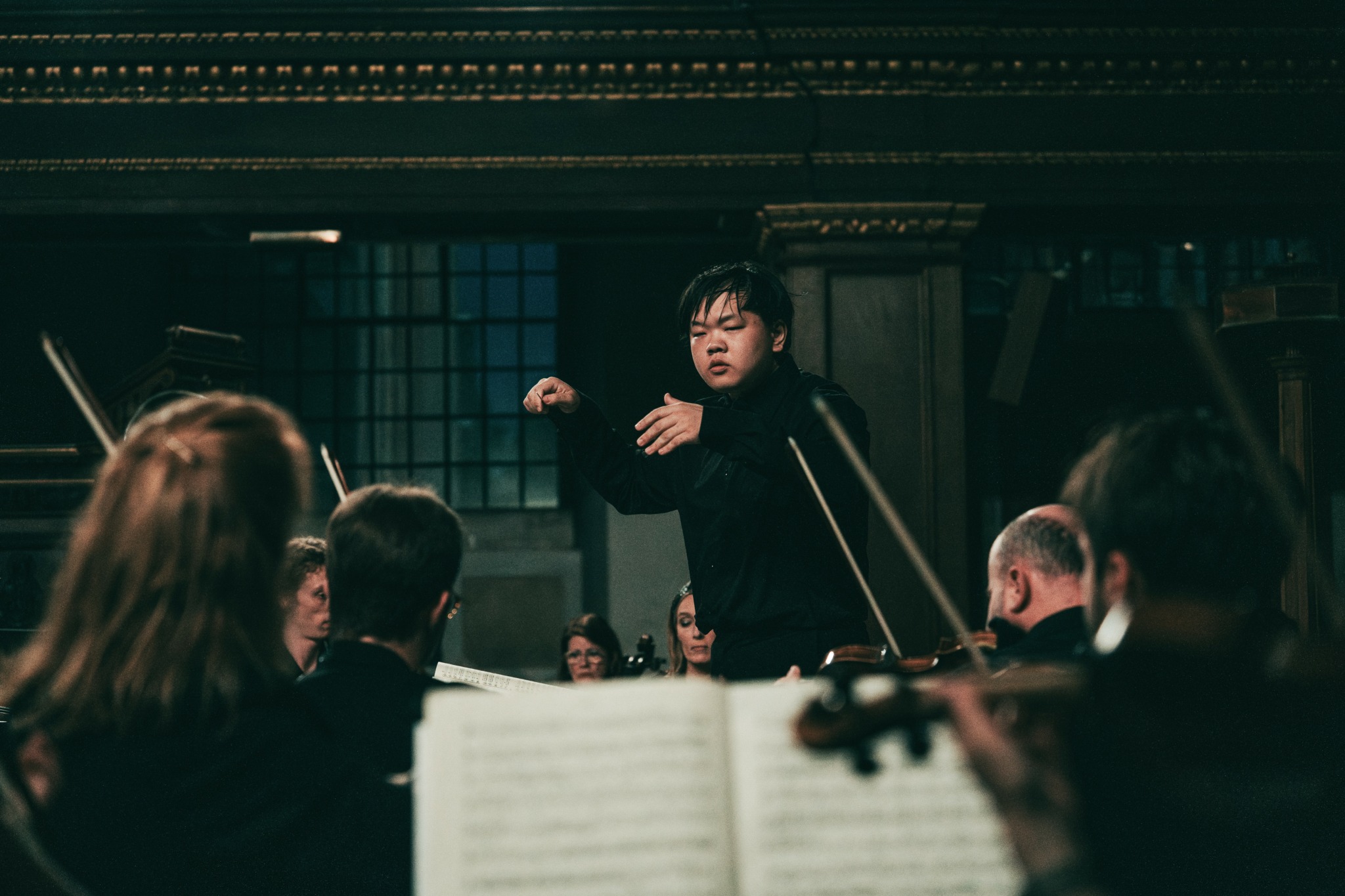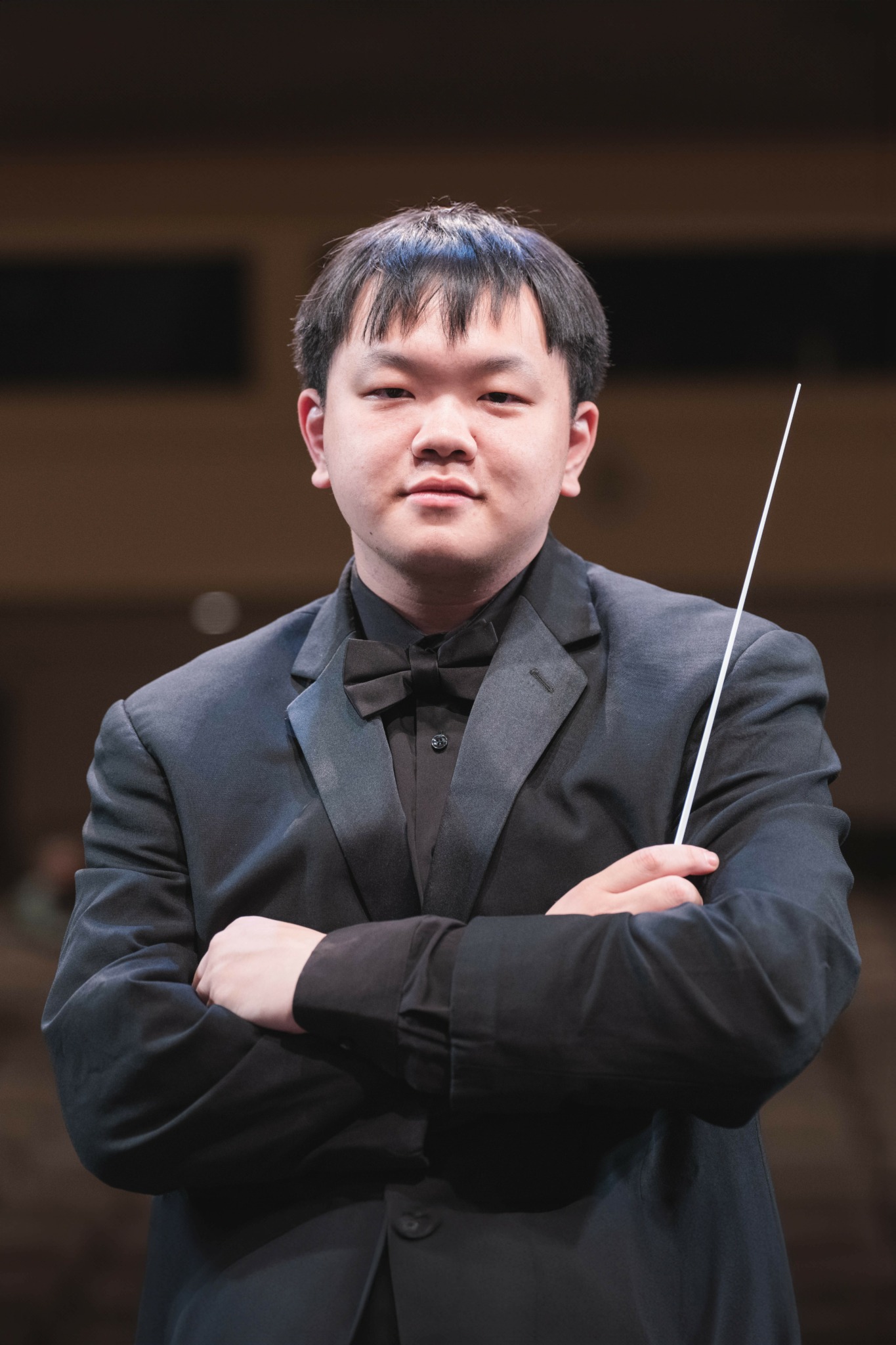Alright – so today we’ve got the honor of introducing you to Gan Xiong. We think you’ll enjoy our conversation, we’ve shared it below.
Hi Gan, thanks for joining us today. We’d love to hear about when you first realized that you wanted to pursue a creative path professionally.
Growing up under the influence of my parents—who, like many in traditional Asian families, believed that pursuing engineering or business would lead to better job security—I focused primarily on computer science and programming throughout high school. Music was something I did on the side. I sang in choir but never took private lessons or formal training. When applying to colleges, I chose schools with strong computer science programs, but I also made sure they had decent music departments, hoping I could stay involved in music while preparing for a “real” career.
The turning point came during the summer before my freshman year, just after I’d been admitted to college. I watched an interview with a Japanese anime production company, where the manager mentioned that most new employees quit within three months. He explained that many young people love watching anime, but they don’t enjoy the long, difficult process of actually making it. That idea hit me hard. I asked myself: Do I really enjoy programming, or do I just enjoy the end product—video games?
I’ve always loved playing games, but when it comes to building or programming them, I never felt that same spark. On the other hand, making music—especially singing and collaborating with others—has always brought me true joy. That realization led me to a major decision: although I started college as a computer science major, I auditioned for the music performance program during my first week and switched majors without telling my family. It led to nearly a year of intense conflict, but I stood by my decision to follow my passion.
Living in Cleveland, I was lucky to be near one of the world’s top orchestras, just a short walk from campus. With a $35 student pass, I attended nearly every concert. While I’ve always dreamed of being part of an orchestra, I don’t play a traditional orchestral instrument. But the moment I saw a conductor communicate and shape music with just their body movements, I knew: this is it. This is what I want to dedicate my life to.
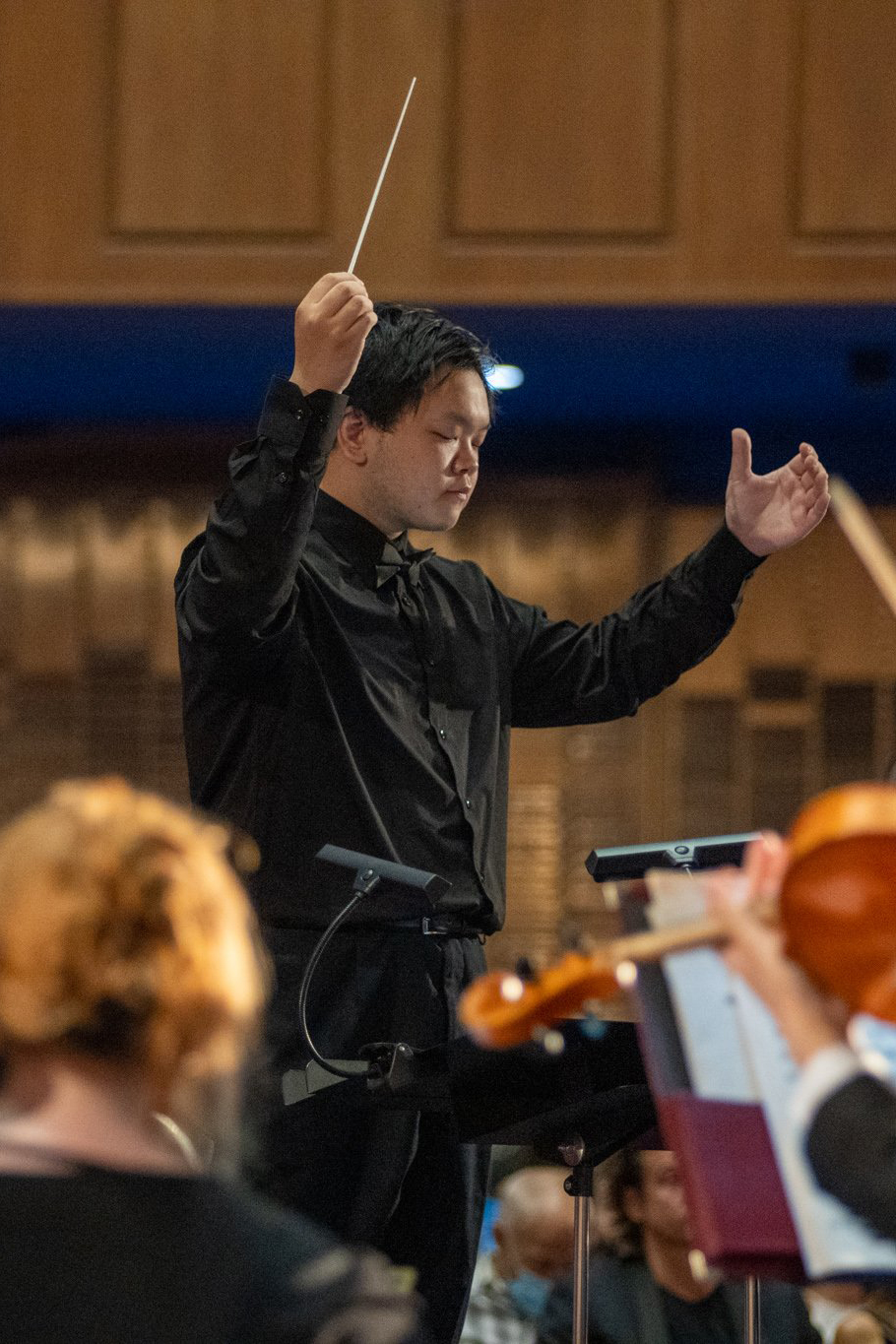
As always, we appreciate you sharing your insights and we’ve got a few more questions for you, but before we get to all of that can you take a minute to introduce yourself and give our readers some of your back background and context?
I began playing piano at the age of five and continued until I moved to the United States for high school. During that time, I joined my school choir, and starting in my sophomore year, I was selected for the Main All-State Choir. I also took part in our school’s musical production, performing as a member of the Sharks. These experiences broadened my perspective and inspired me to pursue a lifelong path in music.
As an undergraduate, after attending a Cleveland Orchestra concert, I became deeply drawn to conducting and have since devoted myself to developing my skills and techniques. My goal is to share great music with audiences, helping them discover the richness of classical music while also bringing my own artistic voice to it.
One of my most meaningful moments came after my first concert at UCLA, where I conducted Shostakovich’s Symphony No. 5. A flute player approached me afterward and said she was moved to tears by the expression I conveyed through the music. That experience reinforced my belief that music should not be limited to a select audience but instead be accessible and meaningful to everyone. My mission is to spread classical music as widely as I can and to create performances that truly resonate with listeners.

What do you think is the goal or mission that drives your creative journey?
I want to keep discovering new repertoire, exploring the voices of different composers, and sharing those ideas with people. To me, music is something that everyone can enjoy, and I feel it’s my role to help open those doors. I especially hope to bring more young people into the concert hall, because nothing compares to the energy of live performance. You can watch videos or listen to recordings anywhere, but being in the same space, at the same moment, surrounded by others who are also listening—that is something magical.
On stage, musicians are not meant to be distant or placed above the audience. We are there to share, to connect, and to exchange something meaningful. All the hours we spend practicing and studying only find their true purpose when we step out and communicate through performance. As a conductor, that is what drives me most: bringing people together through music, creating moments that can move them, and helping more people fall in love with classical music.

For you, what’s the most rewarding aspect of being a creative?
The most meaningful moments happen after a concert, when I step off the stage and audience members come to me with their thoughts and feelings. Hearing that my music touched them is the greatest reward—it means that what I wanted to express truly reached their hearts. Those conversations remind me why I do this, because music is about connection, not just performance.
I’ve even invited friends who told me they “don’t understand” classical music. At first, they were reluctant, but they came because I was conducting. During the concert, I watched them listening closely, and afterward they shared how much my gestures and movements helped them feel the music, even without technical knowledge. Some of them told me they now want to explore classical music more and even attend more concerts. Those words filled me with happiness. In those moments, I feel certain that I am doing my part to keep classical music alive and to open its doors to people who never thought it could speak to them.
Contact Info:
- Instagram: https://www.instagram.com/b_booii/
- Youtube: https://www.youtube.com/@ganxiong4071
